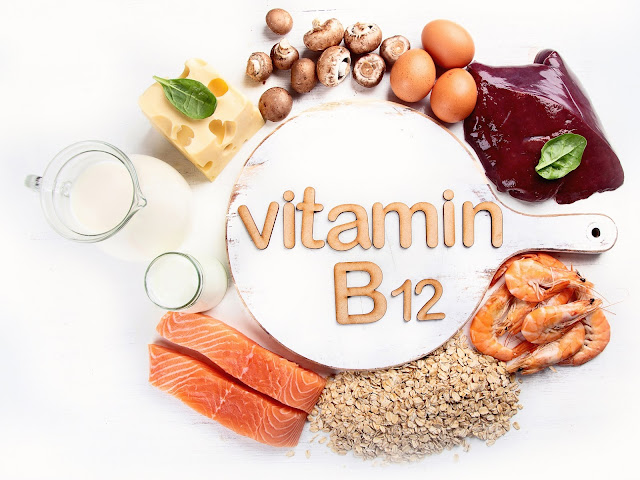The Remarkable Health Benefits of Vitamin B12: A Comprehensive Guide
Vitamin B12, also known as cobalamin, is a vital water-soluble vitamin that plays a crucial role in various bodily functions. While it's often associated with energy and metabolism, the benefits of vitamin B12 extend far beyond that. In this comprehensive article, we will explore the various health benefits of vitamin B12, its sources, recommended daily intake, and potential risks of deficiency.
Section 1: Understanding Vitamin B12
Before we delve into its benefits, it's important to have a basic understanding of vitamin B12. This vitamin is unique in several ways:
Water-Soluble: Vitamin B12 is one of the water-soluble vitamins, which means the body doesn't store excess amounts. It's essential to obtain an adequate daily intake.
Cobalamin: Vitamin B12 gets its name from the mineral cobalt, which is an essential component of its chemical structure.
Coenzyme: It functions as a coenzyme in many biochemical reactions in the body, particularly those involving DNA synthesis, red blood cell formation, and nerve function.
Section 2: Health Benefits of Vitamin B12
Now, let's explore the impressive array of health benefits that vitamin B12 offers:
1. Energy Production:
Vitamin B12 is known for its role in energy metabolism. It helps convert food into energy by aiding in the breakdown of carbohydrates and fats. Individuals with a deficiency may experience fatigue and weakness.
2. Red Blood Cell Formation:
Vitamin B12 is essential for the production of red blood cells. It works in conjunction with other B vitamins, such as folate, to ensure the proper formation of hemoglobin. A deficiency can lead to anemia, characterized by fatigue and weakness.
3. Brain Function:
Adequate B12 levels are vital for maintaining cognitive function and mental clarity. It plays a role in neurotransmitter synthesis and helps protect against neurological diseases, such as dementia and Alzheimer's.
4. Mood Regulation:
Several studies propose that vitamin B12 might have a role in mood regulation and the prevention of depression.
It's believed to influence the production of serotonin, a neurotransmitter associated with feelings of well-being.
5. Heart Health:
Vitamin B12 plays a crucial role in the regulation of blood homocysteine levels, with elevated homocysteine serving as a risk factor for cardiovascular disease. Ensuring sufficient B12 intake can contribute to reducing this risk.
6. Skin, Hair, and Nail Health:
B12 contributes to the health of your skin, hair, and nails by promoting cell reproduction and tissue repair. A deficiency may result in skin conditions and brittle nails.
7. Digestive Health:
The production of stomach acid is dependent on vitamin B12. This acid is necessary for the absorption of various nutrients. A deficiency can lead to digestive problems and reduced nutrient absorption.
8. Pregnancy and Fetal Development:
Pregnant women require sufficient vitamin B12 for proper fetal development. A deficiency during pregnancy can lead to developmental issues in the baby.
Section 3: Sources of Vitamin B12
Now that we understand the importance of vitamin B12, let's explore its dietary sources:
Animal-Based Foods: The most abundant sources of B12 are found in animal products, including meat (especially liver), fish (such as salmon and tuna), poultry, eggs, and dairy products.
Fortified Foods: Many plant-based foods, like cereals, plant-based milk (e.g., almond milk), and nutritional yeast, are fortified with vitamin B12, making them suitable options for vegetarians and vegans.
Supplements: In cases of deficiency or limited dietary intake, vitamin B12 supplements are available in various forms, including oral supplements and injections.
Section 4: Recommended Daily Intake and Deficiency
The recommended daily intake of vitamin B12 varies by age and life stage but generally falls within the range of 2.4 to 2.8 micrograms (mcg) for adults. Deficiency can occur due to various factors, including dietary choices, malabsorption disorders, and certain medications.
Symptoms of B12 deficiency may include fatigue, weakness, pale skin, constipation, loss of appetite, weight loss, and neurological symptoms like numbness and tingling.
Section 5: Who is at Risk of Deficiency?
Certain populations are more prone to vitamin B12 deficiency:
Vegans and Vegetarians: Those who follow strict plant-based diets are at a higher risk of deficiency unless they consume fortified foods or supplements.
Older Adults: Age-related changes in the stomach lining can reduce B12 absorption. Supplementing or consuming fortified foods can help older adults maintain adequate levels.
Individuals with Digestive Disorders: Conditions like celiac disease, Crohn's disease, and atrophic gastritis can impair B12 absorption.
Those Taking Certain Medications: Medications like proton pump inhibitors (PPIs) and metformin can interfere with B12 absorption.
Section 6: Conclusion
vitamin B12 is a vital nutrient with a wide range of health benefits. Its role in energy production, red blood cell formation, brain function, and nerve health makes it essential for overall well-being. While it is readily available in animal-based foods, fortified foods and supplements offer viable options for individuals with dietary restrictions or absorption issues. To maintain optimal health, it's crucial to monitor your B12 intake and consult with a healthcare professional if you suspect a deficiency. By understanding the importance of vitamin B12 and its sources, you can make informed choices to support your health and vitality.












.jpeg)

.jpg)
0 comments:
Post a Comment